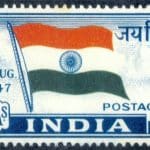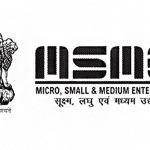Definition of NGOs:
The World Bank defines NGOs as private organizations that pursue activities to relieve suffering, promote the interests of the poor, protect the environment, provide basic social services, or undertake community development.
NGOs are legally constituted organizations which operate independently from the Government and are generally considered to be non-state, non-profit oriented groups who pursue purposes of public interest.
Different agencies recognize these groups with different names such as Civil Society Organizations(CSO), charitable organizations, voluntary organizations etc.
History of NGO in India:
Phase One: The first half of 19thcentury in Indian history was marked by initiation of social reform movements. These reform movements evoked the spirit of devoting life to do something for the disadvantaged sections of the society. It recognized the right of untouchables to education, work of choice and worship, the right of women to education and other social aspects of life. This gave birth to the idea of voluntary organizations for the first time in Indian history.
Phase two: Second half of 19th century witnessed an unprecedented socio-political awakening resulted in the blooming of institutionalized reform movements such as Brahmo Samaj, Arya samaj, Ramakrishna Mission etc. And this prompted the Government to enact the Societies registration act 1860.
Phase three(1900-1947): This period marked the successful attempt of channelizing the voluntary spirit for political action and mass mobilization for the struggle for independence. It influenced the formation of many future voluntary organizations.
Post Independence period:In the post-independence period, a large number of voluntary organizations have taken part in the process of nation-building. The shift to a neoliberal economic and political agenda facilitated the growth of voluntary organizations at a faster pace.
Also Read: डिजिटल सूचना सुरक्षा स्वास्थ्य देखभाल अधिनियम (DISHA/दिशा)
Indian state and NGOs:
In India, the state policies have significantly influenced the formation of NGOs and their activities. The government-sponsored and aided programmes provided financial assistance to NGOs either as grants or as matching grants to support the implementation of social development projects.
- Balwant Rai Mehta Committee, 1957: Today in the implementation of the various schemes of community development, more and more emphasis is laid on NGOs and workers and on the principle that ultimately people’s own local organisations should take over the entire work.
- Rural-Urban Relationship Committee, 1966: Local voluntary organisations can be very helpful in mobilizing popular support and assistance of the people in the activities of local body. It is possible to maintain constant and close contact with the people through these organizations.
- Ashok Mehta Committee: Of the several voluntary organisations engaged in rural welfare, a few have helped the PRIs in preparation of area development plans, conduct feasibility studies and cost/benefit analysis, explore ways and means to induce local participation in planning and implementation.
- In the Sixth Five Year Plan (1980-1985), the government identified new areas in which NGOs as new actors could participate in development.
- The Seventh Five Year Plan (1985- 1990), envisioned a more active role for NGOs as primary actors in the efforts towards self-reliant communities. This was in tune with the participatory and empowerment ideologies, which was gaining currency in the developmental discourse at that time.
- Government support and encouragement for NGOs continued in the Eighth Five- year plan, where a nation-wide network of NGOs was sought to be created.
- The Ninth Five-year plan proposed that NGOs should play a role in development on the public-private partnership model. Also, the agricultural development policies of the government and its implementation mechanisms provided scope and space for NGOs. A case in point is the watershed development program, which has led to the growth of NGOs working for rural development.
- In March 2000, the Government declared Planning Commission as the nodal agency for GO-NGO interface. The message was clear- government has to and will work with the voluntary sector. A ‘Civil Society Window’ was started in 2004, in the hope that it would enable people to engage with the Planning Commission and offer the benefit of their field experiences.
During the 11th Five Year Plan process a regional consultation was organised to get civil society feedback. Participation of Civil Society (CS) had thus already become a strong and robust element in the preparation of the Plan Consultations with citizens on the Approach Paper to the 12th Plan began on many platforms, including the internet.
Registration of NGOs:
Indian NGOs mainly comes under three segments – Societies, Trusts, Charitable Companies.
-Societies: Societies have to register under The societies Registration Act,1860.
-Trusts: Private trusts are registered under the central government’s Indian Trusts Act, 1882, and public ones are registered under the state legislation concerned.
-Charitable companies: They are set up according to section 8 of the Companies Act, 2013. For charitable companies, the compliance requirements are high, as loans and advances are easily available to them compared to a trust or a society. They have to even pay Income tax under IT act 1961.
Also Read: Bangladesh Liberation War– Role of India in the War in Hindi
Regulation of NGOs:
There are laws for the regulation of the functioning of NGOs in India. Foreign contribution regulation Act(FCRA) and Foreign Exchange Management Act(FEMA Act) are among the most important laws connected with NGOs.
Foreign contribution regulation Act (FCRA)
History: Enacted in 1976 by the Indira Gandhi led Government during the emergency. It regulates all grants, non-Indian gifts, and donations-Indian residents. It also prohibits electoral candidates, political parties, judges, MPs and even cartoonists from accepting foreign contributions. The ostensible justification given for the law was to curb foreign interference in domestic politics.
The amended FCRA Act 2010, barred organizations of ‘political nature’ from accepting foreign contributions. It also mandated that the organizations receiving foreign funds should renew their licenses every five years.
Foreign Exchange Management Act (FEMA)
There are certain NGOs which are registered under FEMA and they disburse foreign funds to various associations within the country. Nearly 100 international NGOs and associations receive foreign funds through their liaison offices and disburse them to NGOs across India.According to the FEMA Act, these NGOs are regulated by the Finance Ministry. For example, International donors such as the Ford Foundation, the U.K.’s Department for International Development etc are registered under FEMA but not the Foreign Contribution Regulation Act (FCRA) 2010. This makes it difficult to monitor the flow of funds effectively.
Benefits of India from NGOs:
-The NGOs focus on the search for alternatives to development thinking and practice.
-It creates an atmosphere of participatory research, community capacity building, and the creation of demonstrable models.
-Many NGOs have worked hard to include children with disability in schools, end caste-based stigma, and discrimination, prevent child labor and promote gender equality resulting in women receiving equal wages for the same work compared to men.
-During natural calamities they have played an active role in relief and rehabilitation efforts, in particular, providing psycho-social care and support to the disaster-affected children, women, and men.
-NGOs have been instrumental in the formation and capacity building of farmers and producers’ cooperatives and women’s self- help groups.
-NGOs have implemented the Jeevan Dhara programme for the creation of wells for safe drinking water; promoted community toilets for total sanitation, and supported the public health programs on immunization and for eliminating tuberculosis and malaria.
-NGOs have significantly influenced the development of laws and policies on several important social and developmental issues such as the right to information, juvenile justice, ending corporal punishment in schools, anti-trafficking, forests and environment, wildlife conservation, women, elderly people, people with disability, rehabilitation and resettlement of development induced displaced people to name a few.
-NGOs can and should play the “game changer” to pro-poor development through leadership on participatory research, community empowerment and search for development alternatives.
-Further, the industrial policies have influenced the formation and relations between the businesses and NGOs.
Issues with the functioning of NGOs:
- Transparency and accountabilityare key ingredients of Governance in the NGO Sector as these determine operational efficiencies and risk mitigation. Over the years, the corporate sector has been able to recognize and implement best governance practices through an appropriate institutional framework.
- Of late, some of the local and national NGOs have been found involved in malpractices and acting irresponsibly, thus undermining the credibility of civil society.
- There is a huge flow of funds into the non-government organization sector and this requires prudence and good practices to maintain accountability and transparency to the benefit of all stakeholders.
- Although NGOs do internal auditing but for more accountability and transparency, it is advisable to go through external auditing also, especially where public funds are involved.
- Lack of regulatory frameworks and the fact that India boasts of more than a million NGOs of different roles, structures, and sizes.
- In particular, the Indian voluntary sector urgently needs self-regulatory guidelines and transparency mechanisms to increase the trust and awareness as to how the philanthropic funds are being utilized.
- It is in the self-interest of the NGOs to realize the fact that to implement a structure of ‘corporate governance’principles would provide the real value to the stakeholders. Also, this would enable to track the potentially dubious sources of funding coming in for the voluntary sector – an aspect which has gained impetus in the wake of the increased number of terror attacks and extremist activities.
- Recently, the Union Home Ministry has identified some NGOs as a security threat to the country. Such security considerations have underscored the rising need for improving the governance practices in the Indian NGOs and exercising better regulatory mechanisms, disclosure norms, and management processes including financial management and budgeting systems as well.
Suggestions :
The government should frame guidelines for their accreditation, the manner in which these organizations should maintain their accounts and the procedure for recovery in case they fail to submit their balance sheets.
- Avoid tussle between the Home Ministry and Finance Ministry by bringing the regulation of NGOs under one head.
- General Financial Rules, 2005 have mandated a regulatory mechanism for the NGOs and a comprehensive law in line with these rules should be framed in no time.
- The implementation of astrategic framework is essentially important in the management of an NGO. The endorsement of such a framework brings in professionalism and internal control mechanisms, which further makes the organization’s performance more effective.
- There is a need to bolster public confidence in the voluntary sector by opening it up to greater public scrutiny.
- The Government should encourage Central and State level agencies to introduce norms for filing basic documents in respect of NGOs, which have been receiving funding by Government agencies and placing them in the public domain in order to inculcate a spirit of public oversight.
- The Government could simplify and streamline the system for granting income tax exemption status to charitable projects under the Income Tax Act.
- The Government may consider tightening administrative and penal procedures to ensure that these incentives are not misused by paper charities for private financial gain.
- There must be a formal system for registering complaints, redressing grievances of NGOs.
- The Government should encourage setting up of Joint Consultative Groups / Forums or Joint Machineries of government and voluntary sector representatives, by relevant Central Departments and State Governments.
- It also needs to encourage district administrations, district planning bodies, district rural development agencies, zila parishads, and local governments to do so. These groups could be permanent forums with the explicit mandate to share ideas, views, and information and to identify opportunities and mechanisms of working together.
- The Government also might introduce suitable mechanisms for involving a wide cross-section of the voluntary sector in these Groups/Forums.
Also Read: Types of calendars followed in India
Conclusion :
We are entering into an important phase where there are many targets that the government intends to achieve with the active collaboration of VOs, in the 12th plan. Therefore, it is important to conduct an effective review or report card of the National Policy with specific recommendations.
These recommendations could become an agenda for all Voluntary Organizations, Planning Commission, state governments and national Ministries. Efforts are also needed to further disseminate the information about the policy and its intentions with small VOs as well as government functionaries.
There is a need to solicit commitment from state governments and national ministries. A systematic intervention is also needed to get National Policy approved and adopted by the Indian Parliament. The most serious challenge faced by India today is the conflict between the violent and non-violent approach of development.
The voluntary sector is present in such locations faces the challenge of delivering the services and even mobilizing people on the development agenda. The need of the hour is to work closely with each other for the benefit of the marginalized people, as even today the dream of Mahatma Gandhi has not been achieved.











